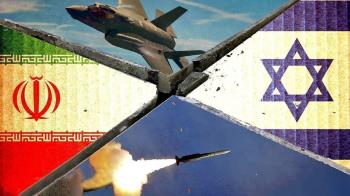Alwaght- As part of a strategy to boost the country's global place in film industry and transform it into a destination for global films, Saudi Film Council (SFC) issued a statement recently, offering foreign filmmakers state fundings reaching 40 percent of the budget of the films that are shot in the Arab kingdom.
The statement, quoting the SFC director Abdullah al-Ayaf, said: "We are happy to announce that we welcome bids by internal, regional, and international filmmaking companies to use the incentives offered for making films inside the kingdom."
"Saudi film sector is growing rapidly," Al-Ayaf was quoted as saying.
He went on that incentivizing programs would help enable local talents, attract global expertise, promote film sector, show beautiful places of the kingdom, and transfer Saudi culture abroad.
But what is behind Saudi investment in the film industry which Riyadh says is the fastest-growing sector?
Commercial goals
When Saudi Crown Prince Mohammed bin Salman in 2017 unveiled Saudi Arabia's development roadmap, called Saudi Vision 2030, for socio-economic reforms to end the country's dependence on oil revenues, one of the key elements of the program was expansion of the entertainment sector. This program included changes in government policies towards the entertainment and tourism sectors and easing the strict and conservative laws of the Wahhabism in the social arena. This program included increasing investment in the film and cinema industry by setting up infrastructure, producing local content, and creating more than 30,000 jobs.
To this end, the government established the General Entertainment Authority, the Public Investment Fund, the Saudi Film Council, and the General Commission for Audiovisual Media.
According to General Commission of Audiovisual Media authorities, by 2030, about 350 cinemas and 2,500 film screening centers will be established in the Arab kingdom, and the country's film industry will generate an income of about $1 billion. Another goal of this long-term policy is to double the share of household spending on entertainment from 3 percent of GDP in 2018-2019 to 6 percent in 2030.
In order to realize this targeting, the Saudi Crown Prince had previously announced an investment of $64 billion for the production of TV series and movies.
Part of the Saudi plans for 40 percent funding to foreign films is aimed at advertising the Saudi tourism. Last year, Riyadh for the first time allowed visits to the pre-Islamic historical sites.
This huge investment, however, pursues goals other than advancing tourism sector: Advertising the ambitious under-construction projects that require foreign investment.
As part of this policy, the Film Council facilitated production of three Hollywood movies. Kandahar, directed by Ric Roman Raugh, is one of the movies that was filmed in Saud Arabia's Al-Ula and Jeddah cities. Other movies include Desert Warior, directed by Rupert Whytt in Noem and Tabuk, and Cherry, directed in Al-Ula by Russo brothers Anthony and Joseph.
From attracting younger generation to changing international view of Saudi rule
In addition to commercial goals, the Saudi leaders are considering the growing role of the film industry in management of the public opinion, propagation of policies, and entrenchment of values. The relations between the US governments and the Hollywood present a perfect example. Saudi rulers project filmmaking as a sector with which they can modify international vision of the Saudi society from tribal to developing one and whitewash the Saudi leaders from patrons of extremist and takfiri ideology and oil-rich rulers in lavish palaces to modern politicians with progressive thoughts.
From another aspect, the sweeping Arab uprisings in last decade seriously sounded the alarms to the Persian Gulf Arab states especially Saudi rulers, telling them that continuation of the past policy in the shadow of rise of a younger generation at the time of vast changes in media, communications, and information technology is impossibe. Actually, while the government still opposes the smallest demands for political participation and throttles calls for democracy, with some easing of strict social codes, the Saudi government is seeking to attract the youths and prevent condensation of discontentment. As part of this policy, the Saudi government lifted ban on cinemas in 2018 after 35 years.
Propagating state policies in Arab world
The new Saudi film industry policies are also driven by regional competitions and a tendency to promote the state policies. In the past decade, under the leadership of the Muslim Brotherhood, Turkey has become a fierce competitor of Saudi Arabia in the Arab world, and in the meantime, the Turkish film industry has played a significant role in increasing the soft power of Ankara in the Arab world.
Moreover, Saudi Arabia in past years used cinema as a propelling instrument pushing ahead normalization agenda with the Israeli regime. Exit 7 and Aaron's Mother, produced by the Saudi media conglomerate MBC, were TV series that reflected on social, economic, and political issues associated with Israel and distorted the Jewish history in the Persian Gulf region.
The promotion of state policies is obvious from the way of funding of the film production. Despite encouraging the production, a strict policy of censorship is still in place by the Saudi government as the film industry receives funds from three state organizations: King Abdulaziz Center for World Culture, culture ministry-run Film Commission, and Red Sea International Film Festival.



























